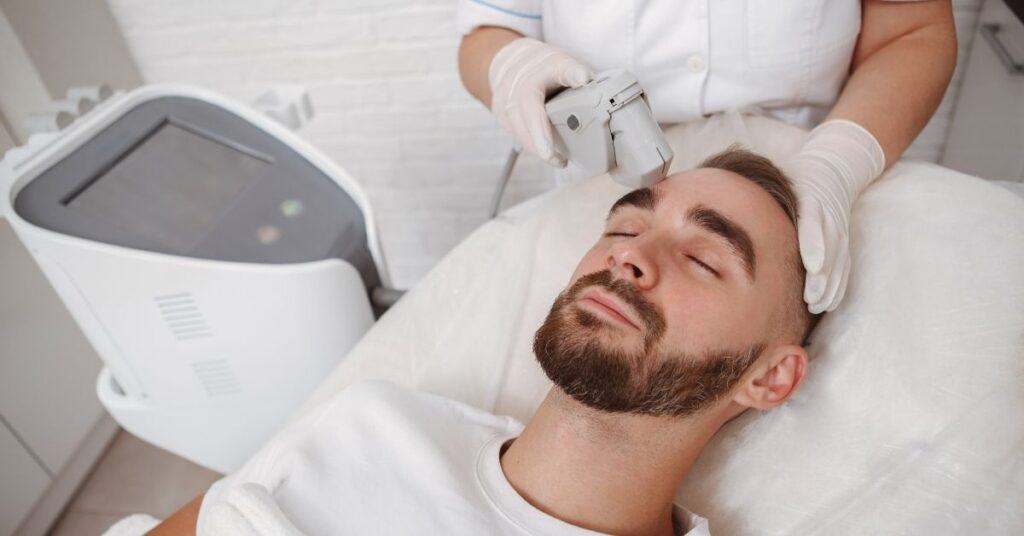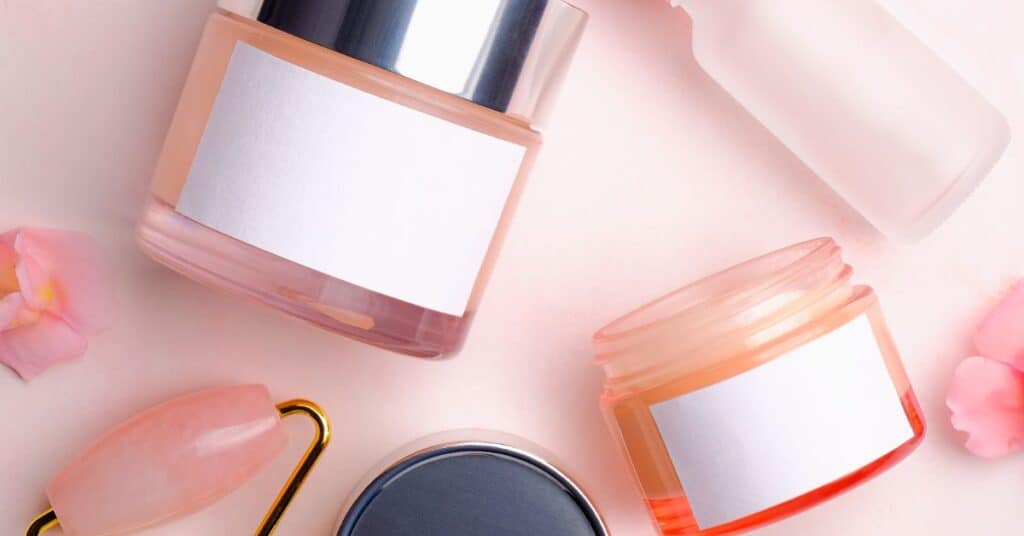Table of Contents
- A Dermatologist Is What
- What Do Dermatologists Do
- What Are The Services Provided By Dermatologists
- When Should You See A Dermatologist
- What Is The Difference Between Skincare And Dermatologist
- How Do You Find The Best Skincare For You
- When To See A Skin Care Therapist
- Why Is Skin Care Important
- Final Thought
Do you want to know the difference between skincare and dermatologist? I will tell you the difference between skincare and dermatologist.
Patients with skin problems commonly seek dermatologists’ advice.
These occupations overlap with people not extensively entrenched in the skincare industry, causing misunderstandings.
However, recognizing their responsibilities is critical to getting the best skin care.
So, what distinguishes a dermatologist from a skin care professional?
However, as you continue reading, I will go over all there is to know about the distinction between skincare and dermatologists and much more.
Now, let’s get started.
A Dermatologist Is What
A doctor specializing in hair, skin, and nails is a dermatologist.
They cure and diagnose disorders that may affect the body’s many sensitive parts. The skin is the body’s biggest organ.
As a result, your dermatologist must be informed of every aspect.
Dermatologists have significant training and understanding in many parts of skin science.
They are also certified by the American Board of Dermatology (ABD).
Board qualifications provide them with extra abilities, such as safety management.
Some dermatologists treat the following conditions:
· Skin blemishes
· Acne
· Rashes on the Skin
· Hyperpigmentation
· Rosacea and Eczema
· Skin Carcinoma
· Dermatitis
· Infections
· Hair thinning
· Issues with nails
A dermatologist appointment cannot just enhance your skin via advice and treatment.
They can detect underlying health concerns that manifest themselves.
These skin irregularities, which can be treated, have the potential to be fatal. Dermatologists, like estheticians, can give procedures to improve the look of your skin and hair.
What Do Dermatologists Do
Having acquired an understanding of dermatologists’ role, one may have curiosity regarding the specific activities they engage in inside their professional routines.
Dermatologists commonly engage in managing chronic disorders necessitating regular medical intervention, as well as treating more severe dermatological ailments.
Additionally, they can assist in cases involving allergic responses or the manifestation of rashes.
Dermatologists possess the expertise to accurately identify skin problems such as rashes and eczema.
They can prescribe appropriate drugs for treating these conditions, as well as other dermatological ailments like acne, herpes, warts, and several others.
It is advisable to have regular skin examinations conducted by a dermatologist to ensure appropriate skincare practices and to detect any potential irregularities in their early stages.
Dermatologists possess expertise in identifying benign (non-cancerous) and cancerous skin growths, such as moles, cysts, melanomas (including superficial spreading melanoma and nodular melanoma), and other lesions like birthmarks.
Consequently, dermatologists can offer their professional assessment of skin-related concerns and detect abnormalities during routine appointments that may have otherwise gone unnoticed by individuals.
What Are The Services Provided By Dermatologists
Dermatologists provide a wide variety of treatments to treat both medical and aesthetic skin issues.
They are educated to diagnose and treat a variety of skin disorders, as well as to prescribe drugs and execute surgical operations as needed.
Dermatologists typically perform the following services:
1. Skin Disorder Dermatologists diagnose and treat skin problems such as acne, eczema, rosacea, psoriasis, and dermatitis.
They apply their medical knowledge to determine the underlying cause of these diseases and provide appropriate treatment methods.
2. Skin Cancer Screening and Treatment: Dermatologists are critical in detecting and treating skin cancer.
They do detailed skin inspections to detect problematic moles or lesions and may perform biopsies or surgical treatments to eliminate malignant cells.
3. aesthetic operations: Dermatologists also provide several aesthetic functions to enhance the look of the skin.
Botox injections, dermal fillers, chemical peels, laser treatments, microdermabrasion, and other procedures may be used.
4. Hair and Nail Disorders: Dermatologists identify and treat hair and nail problems such as alopecia, fungal infections, and nail disorders.
5. Skin Rejuvenation: Because of their skincare knowledge, dermatologists may recommend and conduct skin rejuvenation procedures such as micro-needling, laser resurfacing, and phototherapy.
When Should You See A Dermatologist
You may need to make an appointment with a dermatologist as soon as possible, depending on the nature of your skin problems.
For instance, medical doctors can detect skin lesions, new rashes, and sensitivities. They may also undertake yearly skin checks to assess whether altering moles poses a health risk.
Prescription medications are another tool dermatologists can use to treat new and existing skin conditions that are deteriorating, such as cystic acne that leaves scars.
“Estheticians cannot diagnose medically-related skin lesions and issue prescriptions for conditions such as acne or melasma (prescription-strength retinoids).
They are also restricted in the degree to which or the intensity of the chemical peels they offer.
They can also determine whether these problems are symptoms of another illness, such as thyroid problems or polycystic ovarian syndrome (PCOS).
Suppose a patient has substantial changes in the texture of their hair or is losing their hair.
In that case, a dermatologist may need to diagnose related scalp problems, thyroid disorders, or autoimmune hair loss.
What Is The Difference Between Skincare And Dermatologist
There are a few other distinctions to be aware of:
1. Peels. Estheticians can administer treatments like alpha hydroxy acid peels.
In some areas, they also provide a gentle glycolic acid peel.
Peels that go deep into the dermis, such as those performed using phenol or trichloroacetic acid, should only be administered by a dermatologist.
2. laser surgery. In most states, only a board-certified dermatologist may legally perform laser procedures.
However, in some countries, laser-based skin rejuvenation and laser hair removal are among the procedures for which estheticians are permitted to use lasers.
3. Micro-needling. Since this service is often categorized as a medical treatment in most places, estheticians can only sometimes do it.
Estheticians working in medical spas or clinics may be legally allowed to perform microneedling procedures with a doctor’s supervision in some areas.
If you have acne, uneven skin tone, or persistent dry skin, your first step should be to see a dermatologist.
They can identify the skin issue and help treat it by suggesting medications or other medical treatments.
If your skin isn’t in the best shape, they recommend seeing an esthetician who may help you create a skincare routine to maintain it.
How Do You Find The Best Skincare For You
When you see labels like doctor-advised or tested, you want to be sure you’re getting the best products for your skin that you can be confident will offer you good results.
The reality is that everyone’s skin tone is unique.
Even the best skincare products might trigger allergic reactions. What works wonders on one person’s skin may not work at all on another’s.
As a result, if you want to find the finest skincare for you, you should talk with your dermatologist.
They will be able to assess your skin’s specific requirements and offer products and components that will benefit you.
They can also advise you on which items and substances to avoid.
A dermatologist can assist you if you have an allergic response to a skincare product.
Only apply a new skincare product directly to your face after first doing a patch test.
In this manner, you can determine whether it will create negative responses. If it does not, it is most likely safe to use.
When To See A Skin Care Therapist
You should consult with an expert skin care specialist if your concern is just aesthetic and you aim to attain the healthiest skin possible.
A Skin Care Therapist will listen to all of your concerns regarding your skincare and provide recommendations regarding the treatments and products that will most benefit you in accomplishing your objectives.
However, regarding acne, I have never been required to send a client to a Dermatologist.
I have advised that customers seek medical consultation for changes in skin growths and moles; however, I have never been required to do so.
When clients go to a dermatologist for acne, my biggest worry is that they will be prescribed Roaccutane too fast without giving alternative treatments a chance to work.
Many of my new customers are using Roaccutane to treat their acne; while they take it, they only get the odd outbreak.
My customers have successfully treated their acne without using Roaccutane over the past several years by committing to a skincare routine and treatment program.
If the client has Grade IV cystic acne, I advise them to see a dermatologist and a skincare therapist and collaborate on their treatment.
At an excellent cosmetic clinic, you can receive treatment for skin sensitivity, signs of aging, uneven pigmentation, dermal fillers, and Botox.
Taking care of your skin using skincare treatments consistently will enhance its health.
Why Is Skin Care Important
What is the significance of skincare? Skin care is vital for several reasons, including health, self-confidence, and preventing future skin issues and even skin cancer.
1. Preventive measures
Preventative steps like a well-planned skincare regimen are crucial for optimal skin health over time.
This can help you prevent developing some diseases and slow the onset of specific signs of aging.
The idea that only those with sensitive skin needed to commit to a regular skin care program using high-quality products persisted for a long time.
It’s a huge gap.
Preventative skincare is a must for everyone.
2) Happiness
The skin protects the body’s vital organs and systems from the outside.
Taking care of our skin correctly helps maintain its function as a protective barrier.
Dry or sensitive skin may crack easily, leaving the person open to infection.
Your skin is also integral in shielding you from the sun’s damaging radiation.
As a result, adults and children alike should use sunscreen daily. Skin cancer, after all, is the most prevalent kind of cancer and may affect individuals of all ages.
3. attractiveness
Who doesn’t want to look their best? It is critical to care for your skin since it makes it seem younger.
Because skin cells renew less regularly as you age, your skin may exhibit aging symptoms and lose its youthful glow.
Purifying and brightening the skin can be aided by using high-quality skin care products and treatments like facials.
Applying quality skin care products eliminates dead skin cells, which regenerate into new cells, allowing you to look and feel your best.
Final Thought
Now that we have established the difference between skincare and dermatologist, Please note that the services of a skin care specialist are geared toward enhancing the external aspect of your skin.
A dermatologist isn’t simply for severe skin issues. A visit to a dermatologist can help you understand your skin and how to care for it.
You may discover that your skin is drier than you thought and that you require a heavy-duty moisturizer to care for it.
While both are skin care specialists, they have different areas of specialty and provide different services.
An esthetician, often known as a skincare professional, performs services aimed at enhancing the look of your skin.



